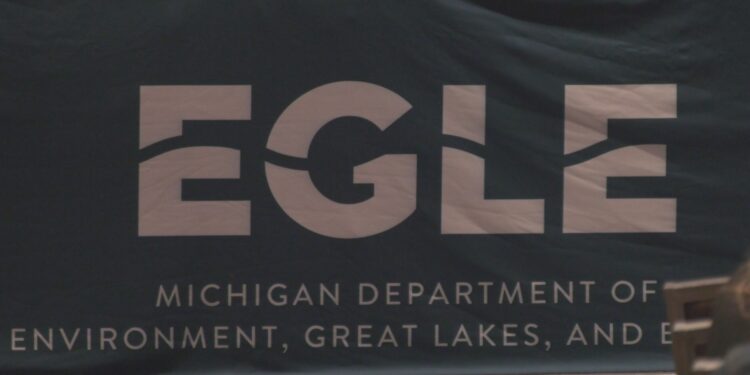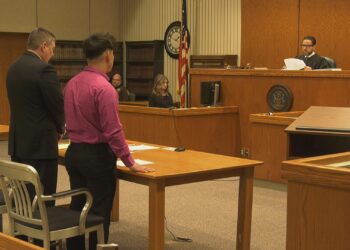LANSING, Mich. (WZMQ) – The final versions of Michigan’s 2025 fiscal year budget are just waiting on a signature from Governor Whitmer, and state offices are already working on plans for next year’s funds.
Michigan’s Department of Environment, Great Lakes, and Energy, or EGLE, has a billion-dollar budget for 2025, which its Director, Phil Roos, said will continue to fund work that has a focus on environmental protection and public health by focusing on clean drinking water, climate-resilient stormwater infrastructure, waste management, brownfield cleanup, and other big projects that help support individual communities.
Last year, more than 50% of EGLE’s budget was given back to communities in the form of grants, usually for infrastructure projects, like the $85 million budgeted next year to replace lead service lines.
New in this year’s budget is $10 million for climate-resilient stormwater infrastructure. An item Roos says will be essential moving forward to cope with more inclement weather and excess flooding.
“We’re looking for areas, particularly that address fundamental human health, like drinking water, but at the same time, wherever possible, they can have economic benefits and create jobs,” Roos said. “It’s sort of a trickle-down of these high-level initiatives around climate into things that really affect people very directly, individuals and in communities.”
Roos said an issue not addressed in this year’s budget that he hopes to make room for is waste management. Particularly efforts to divert food waste from landfills and plug wells that add to methane emissions.
According to a study from the National Environmental Protection Agency in March, Michigan is number one in the country per capita when it comes to waste in our landfills. Roos explained that waste from out-of-state makes up 25% of michigan landfills, largely because the current solid waste surcharge or tipping fee is $.36 per ton, which is lower than any of the surrounding states. He says an increase to $5 would put Michigan on par with midwestern states and create more revenue for other projects like cleaning up contaminated sites and brownfield redevelopment.
The department also plans to continue to focus on climate, energy, and mobility with money for electric vehicle chargers and both residential and utility-scale renewable energy projects. Roos said they plan to continue the department’s Solar for All program, provide $ 30 million for EV mall and apartment charging stations, and invest in hydrogen fueling stations.
“We are aiming big in terms of some of the impacts that we’re going to have. In fact, we’re redefining the way we measure success around how much positive impact does it have on the community, and we’ve charged our entire agency to look for new opportunities to have big impact.” Roos said. “It’s environmental protection. it’s public health protection, but it’s also economic and community development that can make a big difference, and that’s what we’re trying to get across and this budget should help us do more of that.”
Roos said that with climate health goals to meet, and aging infrastructure to replace, egle is excited to put budget dollars into use, working to help state projects that have a personal impact and improve the lives of people in the state.

















